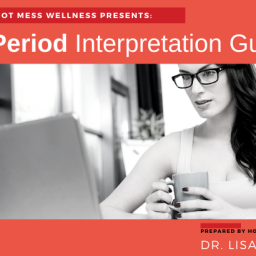
The incidence of gestational diabetes (carbohydrate intolerance that is first identified during pregnancy) is increasing. With up to 10% of pregnancies affected this is becoming a major health concern in North America.
Diagnosing Gestational Diabetes
It is standard practice in North America to screen all women for gestational diabetes using the oral glucose challenge test (GCT) While this universal screening is controversial (the benefits of screening all pregnant women are not established, and there is a high rate of women testing positive for gestational diabetes who do not, in fact, have this condition) it is still common practice for women to be screened between 24 and 28 weeks.
Not every pregnant woman needs to be screened for gestational diabetes. You have the option to decline this screening test. However, all pregnant women with risk factors for developing gestational diabetes should be screened with the GCT. Risk factors include:
- Glucose in the urine (found on routine urinalysis)

- Diabetes in a first-degree relative (parent, sibling or child)
- History of glucose intolerance, including gestational diabetes in a previous pregnancy
- Obesity
- Previous infant with high birth weight
A high blood sugar level (greater than 7.8mmol/L or 140mg/dL) after the GCT is not diagnostic and does not mean you have gestational diabetes. A diagnosis can only be made after a 100g three-hour oral glucose tolerance test (OGTT).
In Canada, to be diagnosed with gestational diabetes following the 100g three-hour OGTT you must exceed two or more of the following blood sugar values:
Fasting: 95mg/dL or 5.3mmol/L
One hour after glucose load: 180mg/dL or 10.0mmol/L
Two hours after glucose load: 155mg/dL or 8.6mmol/L
Three hours after glucose load: 140mg/dL or 7.8mmol/L
Complications of Gestational Diabetes
The potential risks of unmanaged gestational diabetes include:
- Large birth weight babies and increased risk of shoulder dystocia and other birth traumas (including brachial plexus injury)
- Higher rate of Caesarean section
- Postnatal infant hypoglycemia
- Increased risk of mother developing Type II Diabetes
Naturopathic Treatment for Gestational Diabetes
While I don’t believe that all pregnant women should undergo the glucose challenge testing, there are benefits to managing blood sugar during pregnancy and this should be a priority regardless of a diagnosis of gestational diabetes.
Here are my tips for managing blood sugar for all pregnant women, including those with gestational diabetes.
- Avoid simple sugars. No “white” foods – no white bread, white pasta, white rice. Avoid candies, cookies, cakes and other confections.
- Eat regular meals. Eat at the same time every day. Eat every three hours.
- Never consume a carbohydrate without a protein or fat. For example: if you are eating an apple have some almond butter, almonds or yogurt at the same time.
- Increase dietary fiber. Have a tablespoon of ground flaxseeds with every meal. Mix ground flaxseeds with applesauce or yogurt or sprinkle on salads, rice, etc. Ideally, grind your flaxseeds at home with a coffee grinder rather than purchasing them pre-ground. If you do purchase pre-ground flaxseeds, keep them in the freezer for freshness.
 Eat the majority of your carbohydrates at lunch rather than breakfast or dinner. Keep portions of carbohydrate foods small (one slice of whole grain bread, one half cup of brown rice, one half cup of whole wheat or brown rice pasta, one half cup of quinoa, etc.)
Eat the majority of your carbohydrates at lunch rather than breakfast or dinner. Keep portions of carbohydrate foods small (one slice of whole grain bread, one half cup of brown rice, one half cup of whole wheat or brown rice pasta, one half cup of quinoa, etc.)- Exercise for at least thirty continuous minutes once or twice per day. A walk is an easy way to do this but you could consider swimming or yoga or other activities to keep it interesting and to engage other muscles (insulin is used by skeletal muscles – get those muscles using it!)
For gestational diabetes specifically, inositol is a supplement that can be used safely in pregnancy and has been found in studies to improve insulin sensitivity and decrease glucose levels. It takes a few weeks for maximal effects so see your Naturopathic Doctor as soon as you are aware of abnormal blood glucose levels to gain control over your blood sugar faster.
Gestational diabetes is usually well managed with diet, exercise and simple supplements. In rare cases where drugs are necessary your Naturopathic Doctor can continue to provide support with lifestyle and dietary counseling and stress management to ensure you and your baby are healthy throughout pregnancy and beyond.
Disclaimer
The advice provided in this article is for informational purposes only. It is meant to augment and not replace consultation with a licensed health care provider. Consultation with a Naturopathic Doctor or other primary care provider is recommended for anyone suffering from a health problem.


















Thank you! Very helpfull